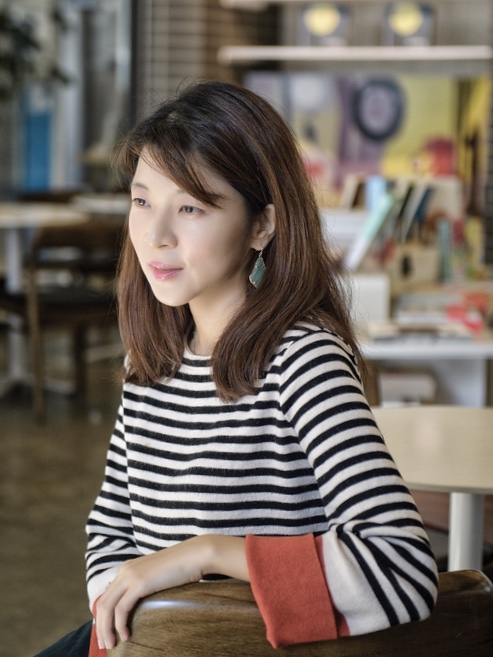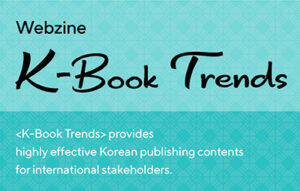My wish was to become a novelist and a movie director!
2020.05.04
There is a novelist who won the first prize with her first novel and won the second prize with her second novel. She was also awarded the film critics award, and scenario synopsis award in the film industry before her novel won its prize. She has always wanted to achieve two dreams: becoming a novelist that writes novels by herself, and a movie director that creates a story with others. It would not be an exaggeration to call her a true storyteller with a perfect sense of balance as she has achieved both of her dreams. Let’s take a deeper look at Sohn Won-Pyong, who became a great sensation in the Korean literary world with her first full-length teenage novel <Almond>.
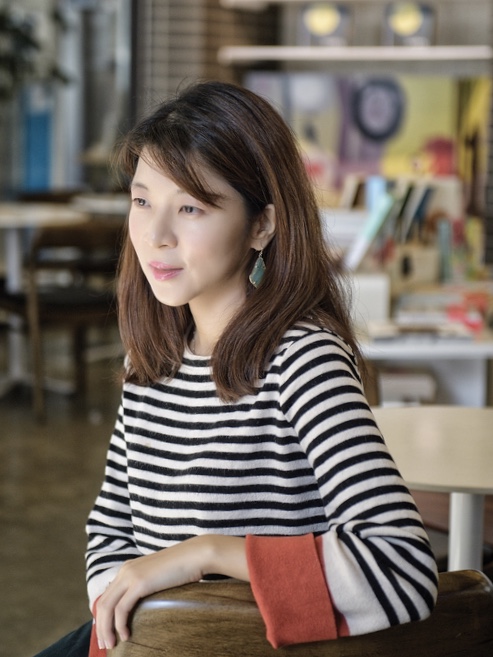
It is a pleasure to introduce you to our subscribers. Please introduce yourself and say hello to them.
Hello, it is nice to meet you. I hope overseas readers can have a chance to indulge more in Korean literature through <K-Book Trends>.
You won The Changbi Prize for Young Adult Fiction in 2017 with your first full-length novel <Almond>. The book became a bestseller that sold 250 thousand copies and exported the publication rights to 10 countries across the world. It seems that you have achieved all of your dreams with your first work. Could you please tell us briefly about <Almond> and what it means to you?
<Almond> is a coming-of-age story that features an emotionless boy Yoon-Jae who undergoes a series of incidents and meets various people which eventually change him and make him grow up. I spent a long time practicing writing and making a debut into the literary world. So <Almond> means so much to me as I could start my career in the industry with it. And I have always been thankful to the readers who have been sending great love.
There are just so many good books in the world,
and good books change lives and their world.
You took <Almond> as a medium to make readers think how difficult it is to understand others’ feelings yet how precious it is. There must have been cases about this – understanding others and feeling empathy toward them – where they provided an opportunity to realize this fact. If there was such an episode where you experienced the influence of the bestseller <Almond> around you, please share it with us.
There was no specific episode until now, so to say. But the happiest comments I hear are parents saying that their children who would just not read books sat down and read through the book without a break. I hope that <Almond> serves as an opportunity for teenagers to find “interest in books.” It is because there are just so many good books in the world, and good books change lives and their world.
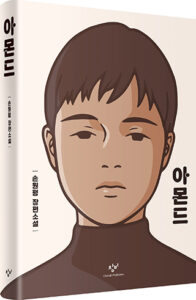
The publication rights of <Almond> are heard to have been exported to 10 countries across the world. Did you have any special experience regarding the export with overseas publishers or readers?
<Almond> won the grand prize for translated books chosen by bookstores in Japan not so long ago. An awarding ceremony was planned, but it was replaced with an online ceremony due to COVID-19. I saw a Japanese bookseller filled with joy by chance when <Almond> was announced as the winner for the prize. It was impressive to see the bookseller putting an arm around the mannequin shaped like Yoon-Jae by their side. It was such a pleasant and meaningful award as it was given by the votes of booksellers.
You’ve also won the Jeju April 3rd Peace Literary Award with your second work <Counterattack of Thirty>. You must have had been having a hectic schedule with the two pieces of good news. The second award would have been different for you compared to <Almond>. Please tell us about <Counterattack of Thirty> along with how you felt when you won the award.
I heard of the news that <Counterattack of Thirty> won the award before <Almond> was published. It was such unbelievable news. Meanwhile, I think I could build courage that “Oh, I guess I am not that bad after all. I bet I can continue writing stories” after receiving two awards. <Counterattack of Thirty> is about an ordinary character “Kim Ji-Hye” born in 1988 meeting several “euls (people of lower standing in the society in terms of social status, etc.)” and attempt a little counterattack against the society.
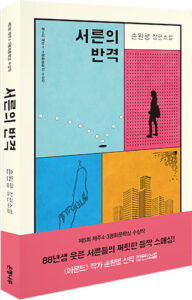
<Counterattack of Thirty> is about a humorous counterattack of the euls (or the young generation) against the gaps (gaps: people of higher standing in the society; or unjust old generation). If you have any experience where you turned unfair authority into an inconvenient practice just like the characters in the story, please share it with us.
Unfortunately, I don’t have a specific episode about it. It is just that since I was young, I really hated the authoritative atmosphere where the upper people treat those under them thoughtlessly while the euls have to obey their orders without any options. Then I realized that I am not an office-worker type of person. I think that such a tendency greatly influenced me to build careers in films and novels.
You threw the question “What kind of adult do you want to become?” through <Counterattack of Thirty>. What kind of adult did you dream of in the past, and how did it turn out today?
When I was young, I would just think that adults are “human beings prepared with everything.” But today, as a grown-up myself, I get to think that adults are not saints, but are just kids with bigger bodies. So they are really just “grown-ups” with grown-up bodies. I want to become a “growing up” person who never stops cultivating the heart rather than becoming a “grown” up.
You were a movie director before becoming a novelist and studied sociology and philosophy in college before working as the movie director. What motivated you to work in the film industry, which is irrelevant to your major, and what made you take on the challenge of becoming a novelist after that?
The world of movies that I encountered around the time I graduated from college was very exciting. It is because movie production is a process in which people cooperate and create a story together. But that very thing, that you get too entangled in various human relationships, is the hard point of movie production. Meanwhile, writing novels does not require other people to join. The two different worlds were equally charming to me in that they complement each other. This is why I wanted to pursue being a novelist and a movie director at the same time in my life.
I want to become a “growing up” person
who never stops cultivating the heart rather than becoming a “grown” up.
It is said that you have spent such a long time writing novels until your full-length novel <Almond> was published. After all the hardships, you have made it to the finishing line. Also, even though you have failed numerous times producing feature films, you released <Intruder> this year, realizing another dream. Please tell us about the motivation that drove you to the end and other dreams that you wish to achieve in the future.
Well, “this is the only thing I can do” was the simple reason that made me endeavor and realize my dreams. I had stopped production when I got so exhausted and tired, but with time, I got to write and plan things again. My next dream is to eagerly continue on with my works without losing steam or becoming complacent.
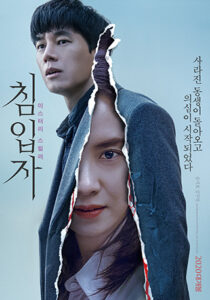
Please tell us about the book you are working on or your future plans.
I am currently writing a romance novel about the relationship between four men and women. As I have been writing stories featuring massive-scale cases or those that gave strong impressions, I am trying to write a novel where “things happening inside your heart” become the case. I hope to become a prolific writer that matures with time. Thank you.
Organized by Choi Hyo-Jun
